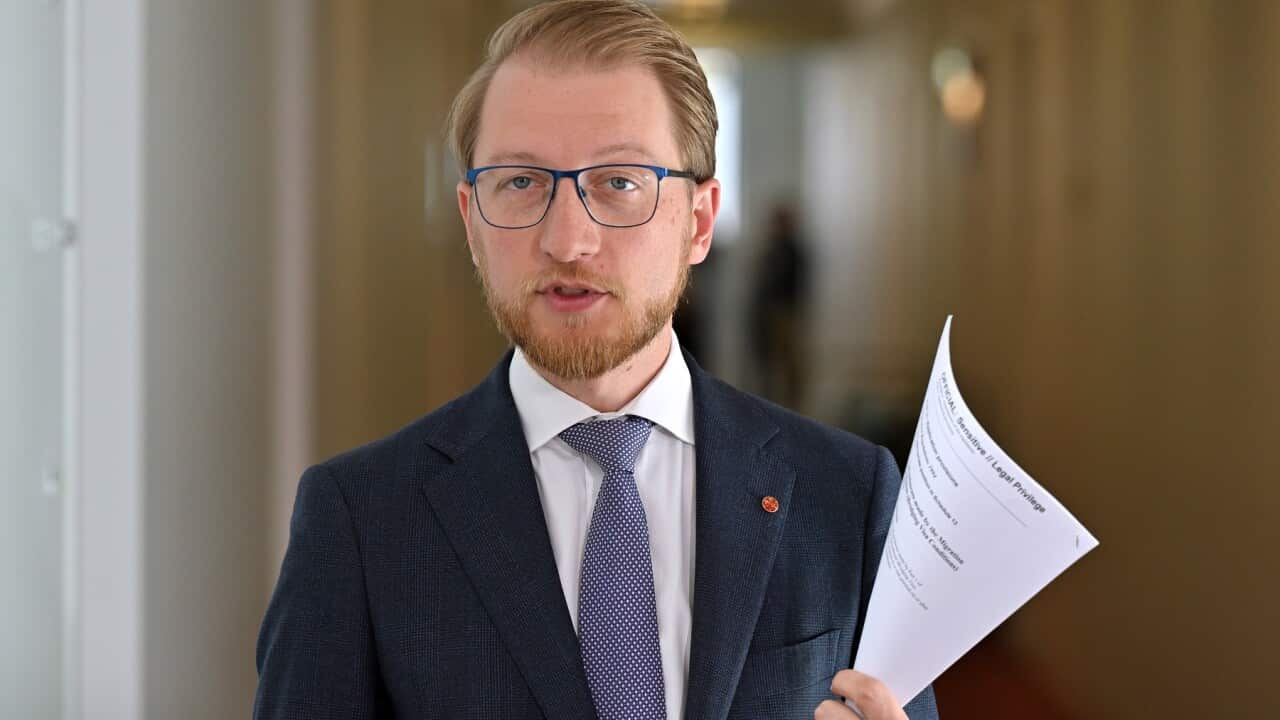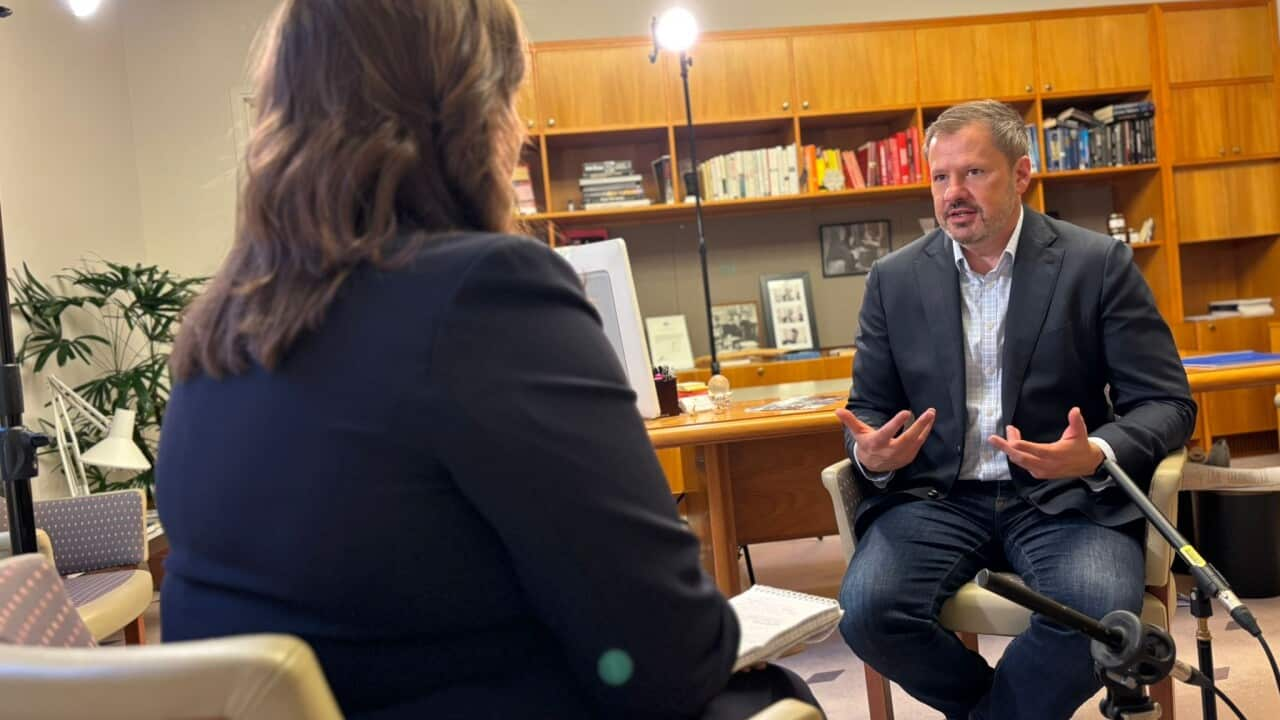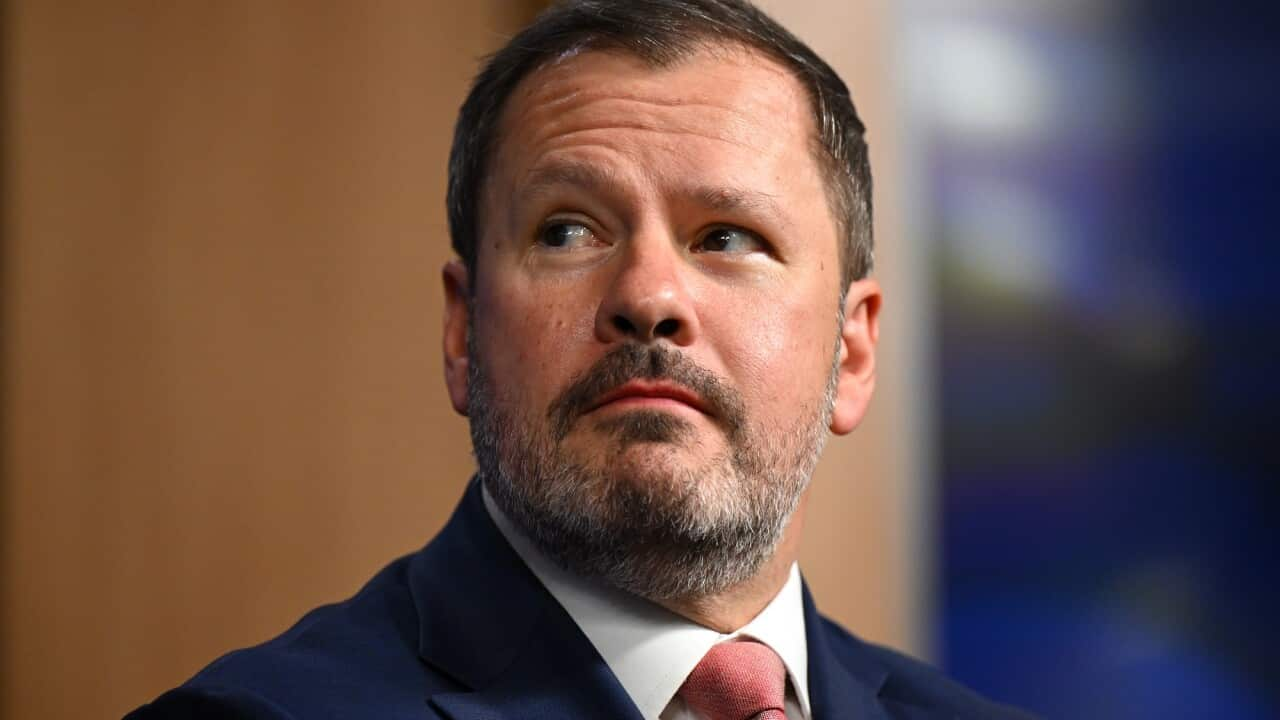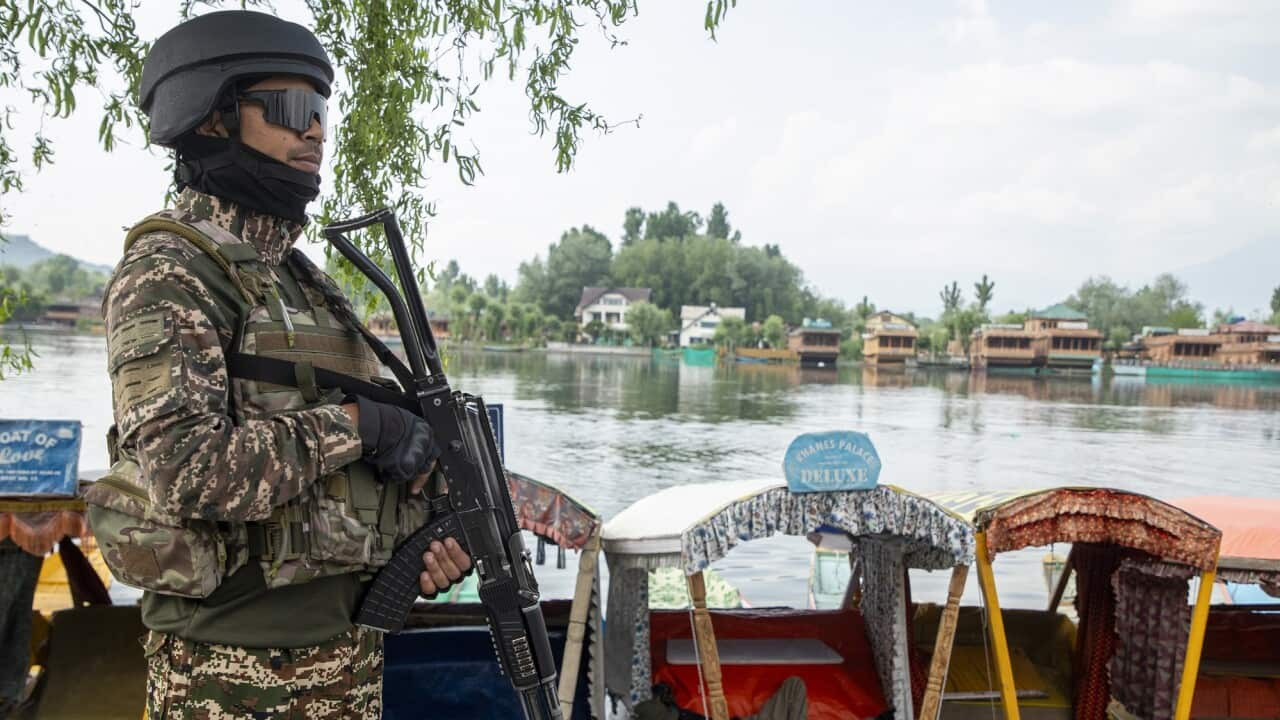TRANSCRIPT
The release of the High Court's reasons for ruling indefinite immigration detention unlawful has been high on the political agenda today.
The reasons published on Tuesday afternoon reveal all seven justices were in agreement over the decision to overturn the 20 year-old precedent case of Al-Kateb and render indefinite detention to be unlawful.
It comes as the federal opposition has continued to criticise the government's handling of the release and monitoring of detainees.
The Opposition Minister for Home Affairs James Paterson has said Labor should have been ready with a response ahead of the High Court's reasonings.
“The Albanese government needs to be ready to go tomorrow with legislation to introduce a preventative or continuing detention order regime for at least the highest risk offenders in this cohort, so that the government can apply to the court to have them detained and protect the community over summer.”
While Greens senator Sarah Hanson-Young has criticised the government's rushed approach to pushing through legislation.
“The government should have waited for the high court's reasonings before ramming through that piece of legislation two weeks ago. They've now been caught flat footed because the bill is wrong - it's a bad piece of legislation and I suspect the High Court is not very happy.”
Criticism over the government's monitoring of former detainees who have been released has also continued.
Under a deal brokered with the coalition the government introduced mandatory monitoring of the released detainees - but five of the 141 people have refused to wear ankle bracelets.
Authorities have launched a search for at least one individual released from indefinite immigration detention after they refused to wear an electronic tracker.
Minister for Government Services Bill Shorten has defended the government's response, telling Channel 9 that Labor has confidence in the Australian Federal Police's handling of the situation.
“No, I've got no doubt that the federal police will find this fellow. There's not much more I can add to what's been in the story this morning. We don't comment on individual matters. As I understand 132 detainees agreed to wear bracelets, five didn't; they were referred to the AFP.”
Meanwhile, Labor Senator and Yarawu Elder Patrick Dodson has announced he will retire as Senator for Western Australia on the 26th of January.
Mr Dodson says his treatment for cancer left him "physically unable" to fulfill his duties in a satisfactory way.
Known as "the father of reconciliation" for his years of advocacy for Indigenous rights, Mr Dodson most recently he served as the government's Special Envoy for Reconciliation and Implementation of the Uluru Statement from the Heart.
Mr Dodson says the advocacy for Indigenous rights and empowerment for First Nations people he has been so dedicated to throughout his time in parliament must continue.
“The legacy of colonisation and settlement is still there. You can huff and puff as much as you like about how we benefited from it. But it's still there. It's a reality - Stolen Generations, incarceration rates, all of these things are consequences are being destabilized and disrupted and displaced. Now, if we don't acknowledge that as the underpinning causes for why first peoples are in the positions in many cases that they are in, because of the consequences of that, then we simply going to have a legacy of welfarism being perpetrated.”
Indigenous Affairs Minister Linda Burney has paid tribute to Mr Dodson and the work he has done to further Indigenous rights.
“His contributions, what he has allowed us to see, what is entire life has been about is the rights of First Nations people. We love him. We aren't going to miss him because we're going to hassle the hell out of him. But he is a very loved person in this Parliament.”
And Minister for Defence Industry Pat Conroy has defended Labor's defence track-record, saying it has maintained a consistently strong approach.
It comes after the government revealed on Monday the nation's defence industry strategy won't be made public until next year, sparking criticism from the opposition.
Mr Conroy has reiterated the government's commitment to the nuclear submarine AUKUS agreement, saying the billions of dollars Australia will spend over the next three decade are essential for deterring conflict.
In an address at the National Press Club, the Minister has likened the current strategic environment to the lead up to World War II, and says lessons from this era are informing defence strategy today.
“When we look at our region, we see intensifying great power competition, accelerating military buildup, rising tensions, and reduced warning time for conflict. This is Australia's most challenging strategic circumstances since the Second World War. And looking back to the lead up to the Second World War provides important lessons about the need to invest in defence.”














